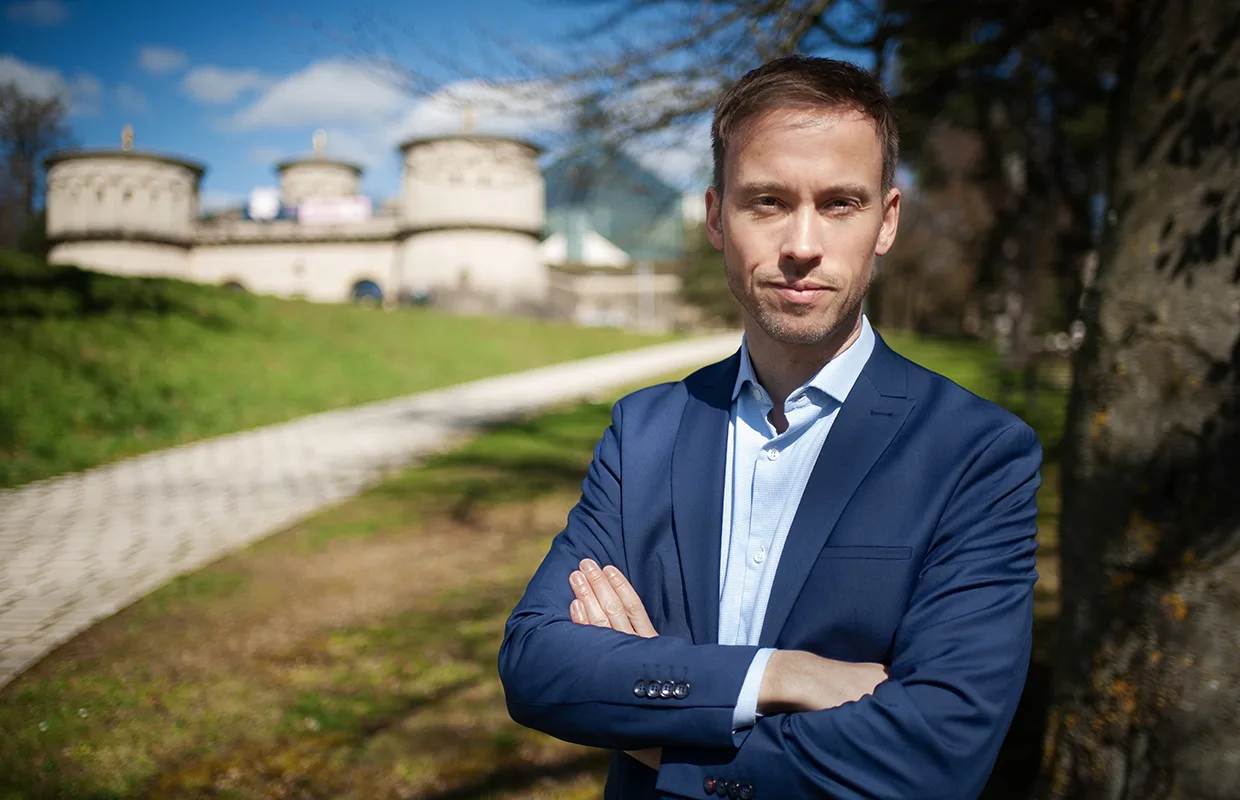We discover the enchanting allure of Luxembourg, from the cultural hub of the capital to its five unique regions, hiking trails, and culinary diversity with Dr Sebastian Reddeker, CEO of Visit Luxembourg.
Q&A WITH VISIT LUXEMBOURG
Firstly, can you introduce us to Visit Luxembourg as the country’s national destination marketing organisation?
Dr Sebastian Reddeker, CEO (SR): Visit Luxembourg is a public-private partnership organisation representing a part of the country’s economy, specifically tourism.
We were actually founded many years ago as a national tourist office, then there was a structural switch and Luxembourg for Tourism (LFT) was born.
Historically we’re older than that, which is important because it’s a structure that people in Luxembourg know well, they appreciate that we’re there, and we have the local support to work not just inside the country but also on our main business, which is promoting Luxembourg elsewhere, mainly in our neighbouring countries.
How do you set about your mission to promote Luxembourg as a tourist destination globally?
SR: We do international marketing, and everything starts with research. We have an important research department where we have a look at all the trends and data.
We have a communications department, together with a marketing section that set up the international ‘Luxembourg. Live the moment.’ campaign we’re doing at the moment. The campaign is basically 90 percent online and we are active on social media platforms, such as Instagram and Facebook which are increasingly important.
As demand remains, we are still present at fairs with our Visit Luxembourg stand, even though it was predicted after the COVID-19 pandemic that such events would cease to be popular. However, they’re still very important for us, especially thematic fairs for hiking and biking. We still do some classic PR work and have a wide range of print materials to accompany our digital platforms and products.
Our destination magazine Luci has received 12 international design awards. I think it’s very important to set up a destination magazine that has a certain quality made to keep and is not just another brochure to take and throw away.
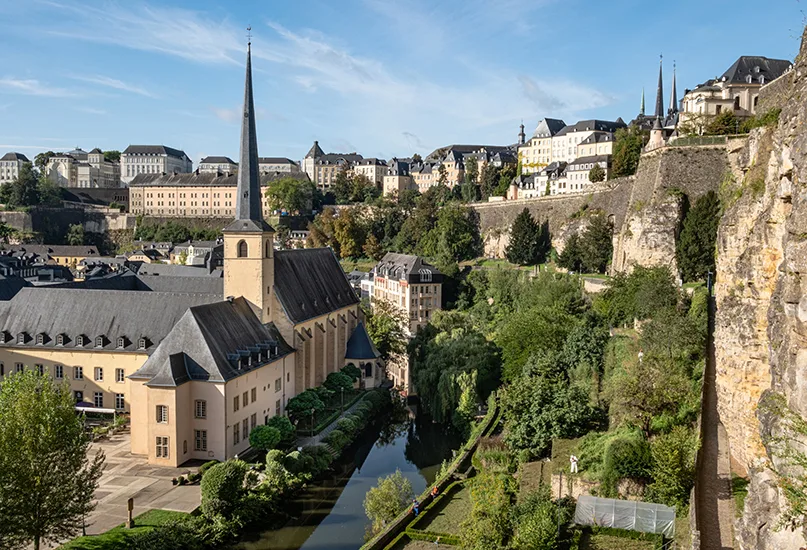
Why, in your opinion, should someone visit Luxembourg and discover its enchanting allure?
SR: Luxembourg for a lot of people is still a very unknown destination, but it’s worth visiting. It’s not just a city; there’s a whole country and five regions around it.
It’s a small 2,600 sqkm territory, but we have the hilly region of Éislek in the north that is part of the Ardennes. We also have the former industrial region of Minett in the south with a very interesting heritage, Mullerthal with its sandstone formations in the east, Guttland’s idyllic countryside in the centre, and the Moselle with its vineyards.
There is a variety of landscapes and experiences to discover. The combination of city and outdoors, accompanied by good food, is often a winner and easy to plan because of the short distances.
What tourist attractions and experiences would you recommend in the capital, Luxembourg City?
SR: The capital is the cultural hub of the country. European institutions are based here, and we have our cultural spots like the Philharmonie Luxembourg, Grand Théâtre, and many others.
Nearly all the nations you can find on Earth mingle and form this multicultural, multilingual society. Luxembourg is a historic place because of the fortress that was constructed over the centuries. It defines the cityscape, co-existing alongside the modern capital it has become. As a visitor, you can experience this microcosm of Europe.
As well as diving into the capital, why should tourists also tour the country’s five unique regions?
SR: In under an hour from the capital, you can be in any of the country’s five regions. Where to go depends on what you like to do, but you’ll be surprised at just how much a small country has to offer.
Starting in the north, the hills and castles of Éislek invite visitors to hike and bike on trails in stunning natural surroundings.
Mullerthal is famous for its sandstone formations and the Mëllerdall UNESCO Global Geopark, which is a magnet for hikers and campers. Here, you also have Luxembourg’s oldest town of Echternach with its wonderful abbey.
Guttland in the centre is the place to go for slow tourism experiences and the Valley of the Seven Castles.
Luxembourg’s vineyards and wine cellars are dotted along the Moselle river. Schengen is a picturesque village well-known to everybody who travels as the Schengen Agreement was signed there. Schengen and the Moselle are ideal to feel the European spirit, as well as for food and wine.
In the south, you have Minett, also known as the ‘Land of the Red Rocks’ because of the red earth. You can visit the remains of industrial production in Luxembourg, where they mined iron to produce steel, as well as explore a UNESCO Biosphere Reserve.
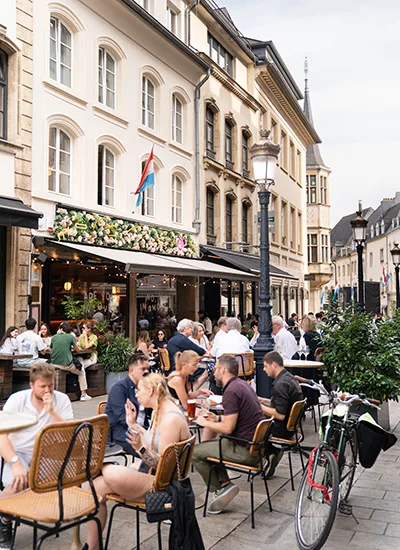
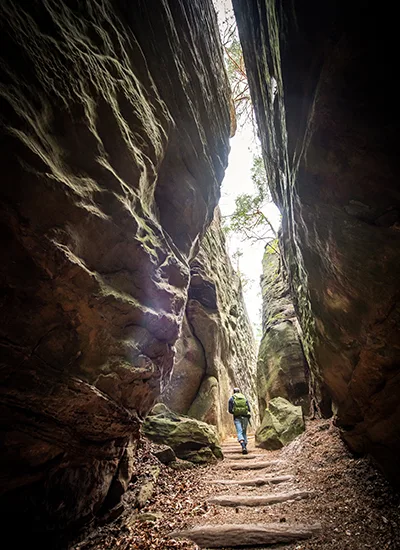
With one of the densest trail networks in Europe, what makes Luxembourg the ideal destination for hikers?
SR: Luxembourg has two routes certified by the European Ramblers Association as ‘Leading Quality Trails – Best of Europe’ in Éislek and Mullerthal.
We have different hiking levels, from comfort hikes which are accessible to all, up to high-end, multi-stage hiking trails which people come from far away to experience.
The 112km Mullerthal Trail can be split into three different circuits and gives you a fascinating experience of not only the Luxembourg countryside, but also the geological history of the country.
Equally, what inspiring cultural hotspots are there to discover in Luxembourg?
SR: In general, the cultural life is quite vibrant. In Luxembourg City alone, there are over 700 different events during the year and many of them are cultural.
Summer in the City offers months of free open-air concerts and festivals. Thousands of people come to City Sounds or Kinnekswiss Park to hear top artists including the Luxembourg Philharmonic Orchestra and international guests of all genres.
There’s also the Mudam, which houses contemporary art and is an architectural icon. Art is a very important aspect of cultural life in the country, and we have events such as Luxembourg Art Week and Lux Film Fest. Lots of them are held in public places, parks, and castles, so it’s definitely worth having a look at the agenda.
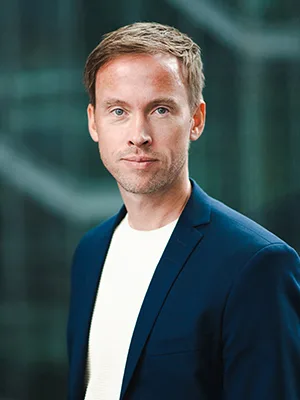
“In general, the cultural life is quite vibrant. In Luxembourg City alone, there are over 700 different events during the year and many of them are cultural”
Dr Sebastian Reddeker, CEO, Visit Luxembourg
Why do foodies also find themselves falling helplessly in love with the country?
SR: I would say it’s the diversity of culinary approaches that seduce the foodies. Traditional Luxembourg cuisine is rooted in the history of the country. That said, we have high-end French-style cuisine, a touch of German, and a lot of Portuguese and Italian influences, amongst others.
The quality of food and gastronomy in Luxembourg is really high. We have some Michelin-starred restaurants, but on the other hand, we also have a lot of street food and urban gardening projects.
To understand the culinary diversity of Luxembourg, it’s important to know that it’s not just a city. You can get to know the whole country’s agricultural production when you’re here.
Our cider farm in the east of country is also internationally recognised, with over 150 apple varieties to produce cider but also apple juice, so there are also some niche products that people definitely don’t know about yet.
“We are proud of our country, would like to show it to others, and are ready to welcome people”
Dr Sebastian Reddeker, CEO, Visit Luxembourg
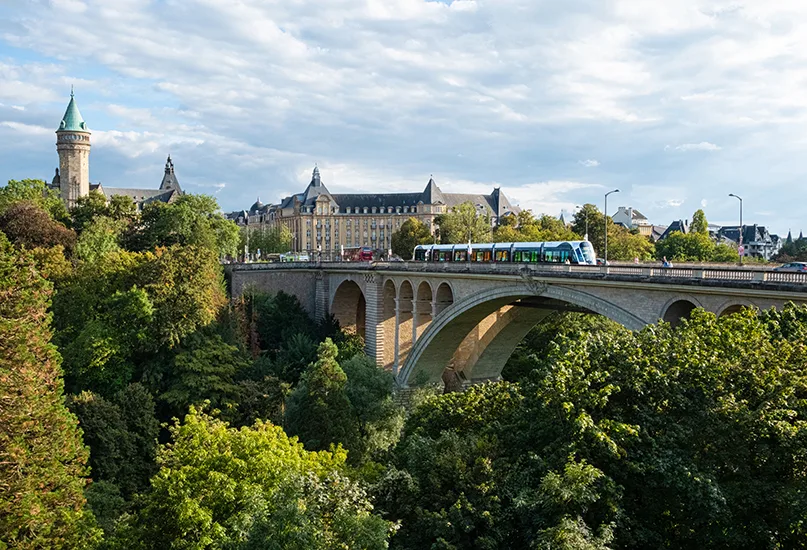
Finally, are you optimistic about the future of tourism in Luxembourg?
SR: I’m optimistic because if you compare the general evolution of tourism and the situation of Luxembourg, we have some clear advantages.
Firstly, the weather is not too hot for prolonged periods. The weather can be beautiful throughout the year, but it is not guaranteed, so we can’t promote Luxembourg as a sunny destination. We see more Spanish and Italian tourists coming during the summer because it’s too hot in Southern Europe. We also see many people looking to avoid crowded places choosing somewhere off the radar instead.
Luxembourg has an economic structure that is not completely reliant on tourism like many other destinations in Europe. I wouldn’t say tourism is an add-on, but there is space for you as a visitor, and your experience is not overcrowded or stressful in that sense at all.
There is considerable support for tourism from the local population, which is always important. We are proud of our country, would like to show it to others, and are ready to welcome people.


